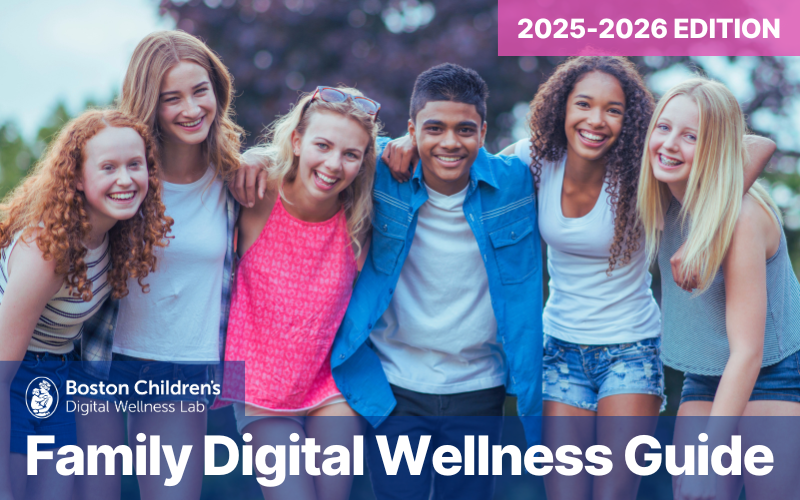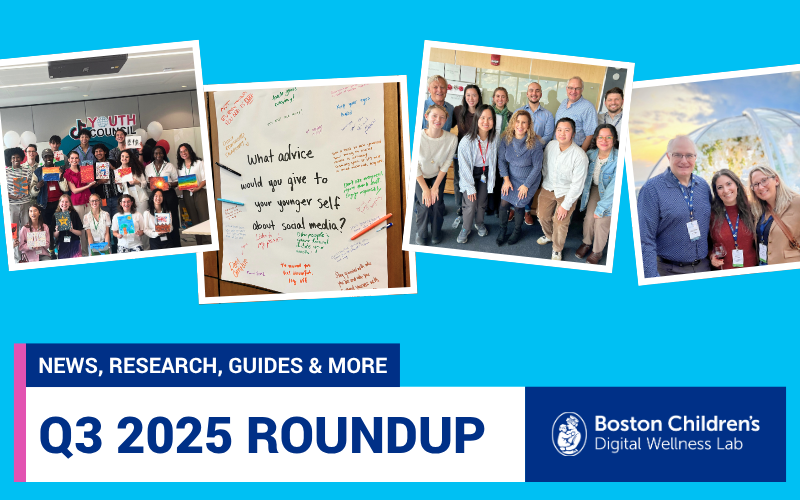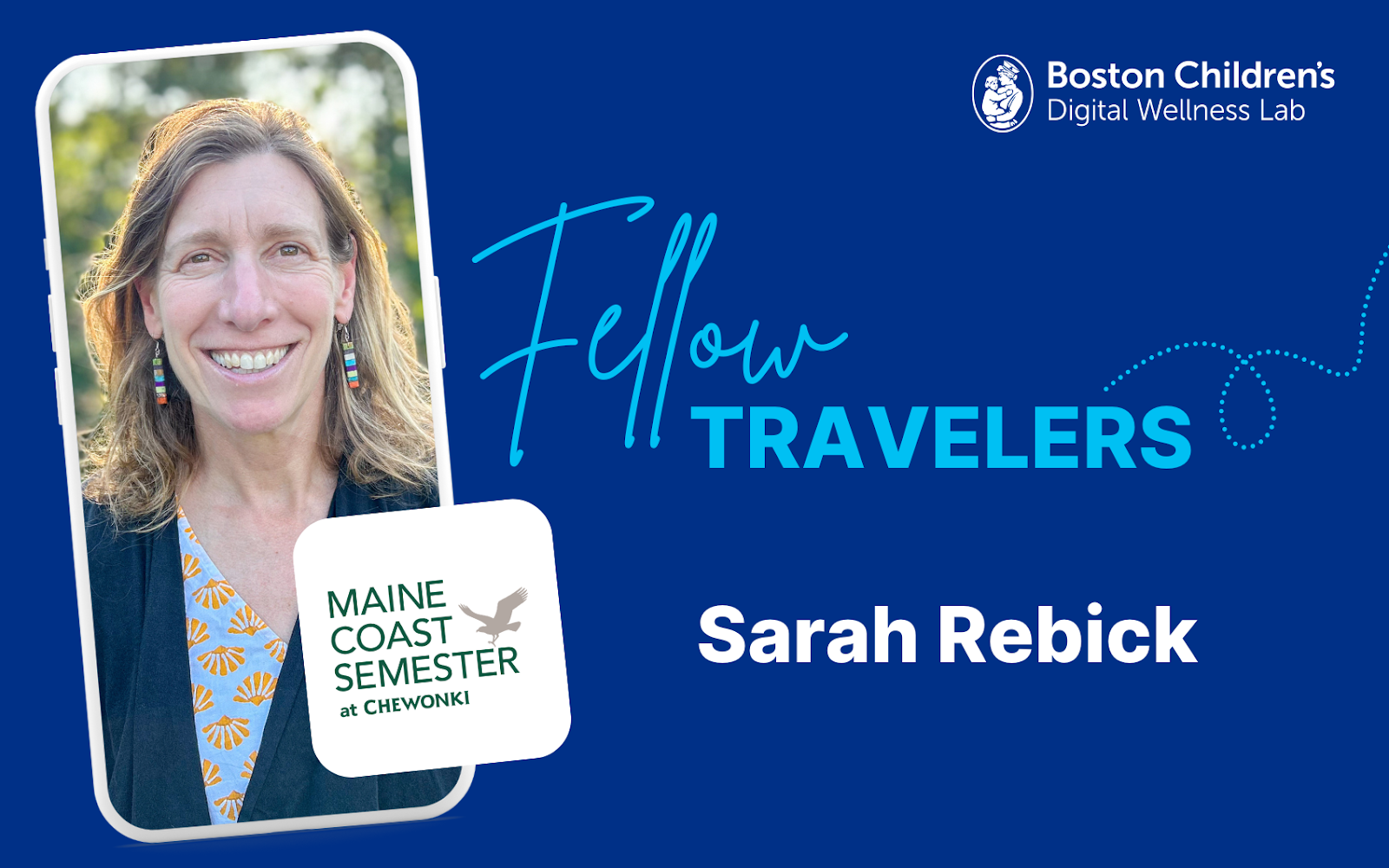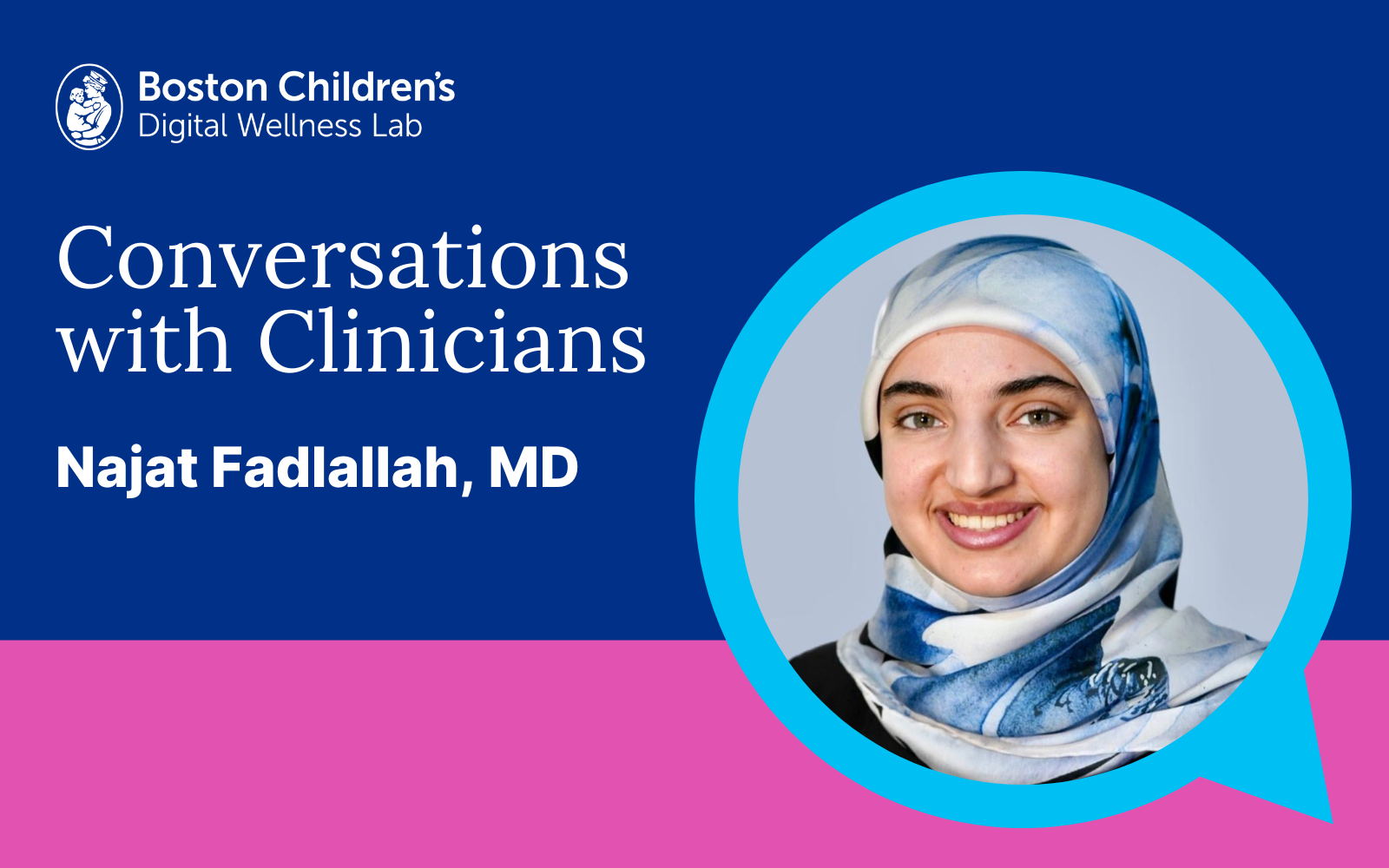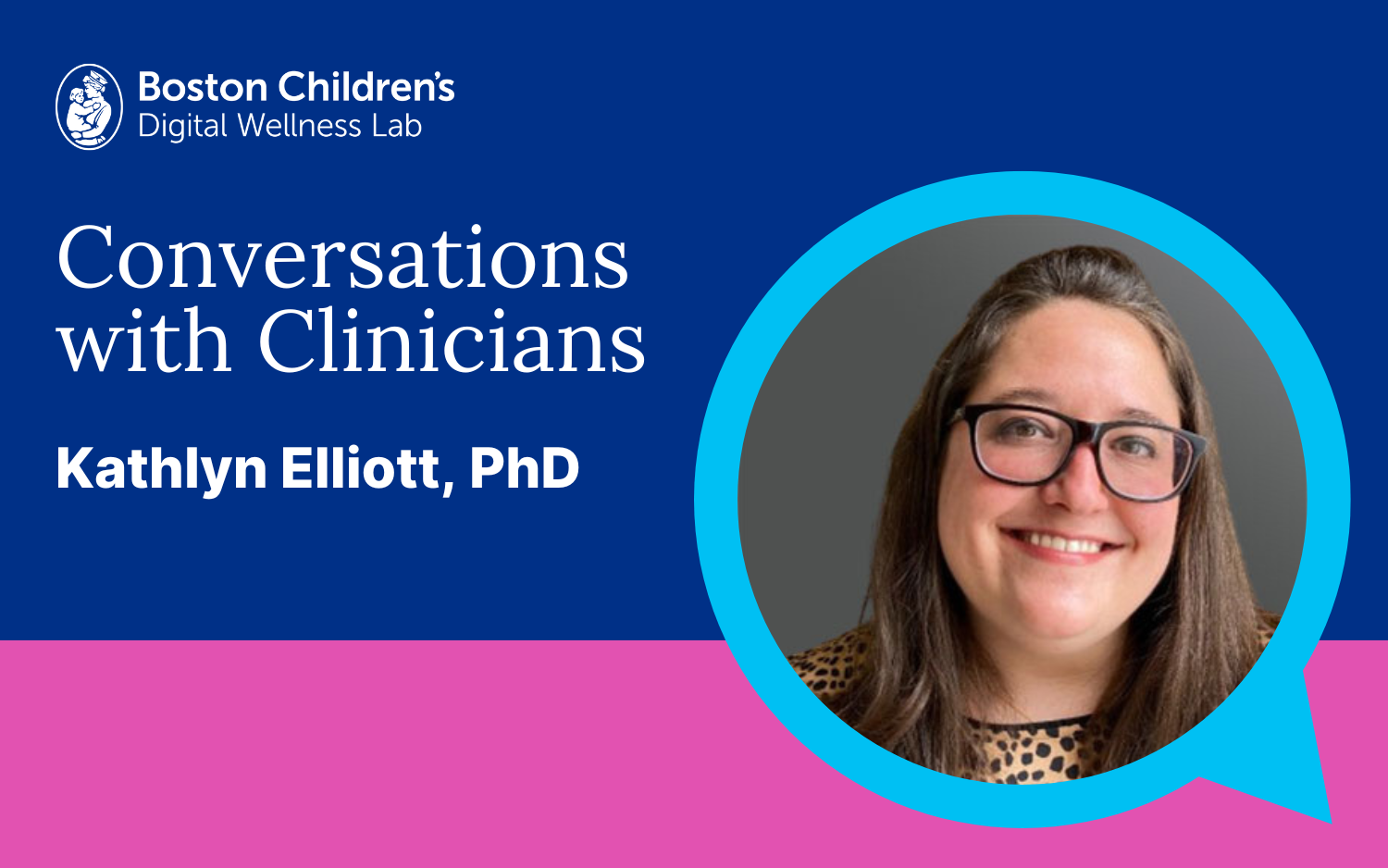As summer transitioned to fall and students returned to classrooms across the country, our team was hard at work translating research into impact, elevating youth voices, and participating in national conversations about how to build a healthier digital future for young people.
This quarter, we released new research on leveraging interactive media for social-emotional learning, provided evidence-based guidance for families navigating back-to-school transitions, and contributed to national conversations about school cell phone policies. We also opened applications for our 2025-26 Student Advisory Council, reinforcing our commitment to centering youth voices as we seek to understand technology’s impact on their lives and their vision for a healthier digital ecosystem.
From facilitating workshops on AI and early childhood development to participating in global convenings on digital trust and safety, our team continued to bridge the gap between research and practice—translating science-based evidence into actionable strategies for families, educators, policymakers, tech companies, and most importantly, young people.
Here’s a look at what kept us busy in Q3 as we worked toward our vision: an empathetic and respectful digital world where kids can grow up healthy, smart, and kind.
Q3 Highlights
Research
- Released our newest White Paper, Leveraging Interactive Media to Foster Social-Emotional Learning for Youth, wherein we explored how social-emotional learning can be embedded in the digital platforms youth already use to support their wellbeing.
- Released a new research brief, Young People, Content Effects, and Current Content Moderation Practices, reviewing how young people access certain types of content frequently cited as concerning by regulators and platforms (e.g. violence, sexual content), and how young people respond to harmful content, including youth viewpoints on content moderation practices.
Initiatives
- Welcomed the new 2025-2026 Student Advisory Council, 16 outstanding high school students from across the U.S., along with five returning student mentors.
- Highlighted a wealth of Q3 Activities from the Inspired Internet Pledge’s Signatories and Advisors working to create a safer and healthier digital ecosystem.
Presentations, Summits & Conferences
- Clinical Research Assistant Katrina Ho attended the 2025 Digital Media and Developing Minds International Scientific Congress, joining researchers, clinicians, educators, government agency representatives, and others from around the world to explore how digital media use impacts the social, psychological, cognitive, behavioral, and physical development of children and adolescents.
- Executive Director Cori Stott participated in TrustCon, a global conference dedicated to the trust and safety profession that focuses on keeping online platforms and communities safe. The conference offered opportunities to collaborate, learn from trust and safety professionals, and explore the future of the field.
- Dr. Michael Rich presented a keynote at the 17th Brazilian Congress of Adolescence about his book, The Mediatrician’s Guide, now available in Brazilian Portuguese!
- Kaitlin Tiches participated in a closed-door briefing hosted by the Tech Coalition, alongside the UN General Assembly, focused on strengthening how we measure progress toward increased online child safety.
- Dr. David Bickham presented a talk on digital wellness and mental health to the Psychiatric APRN Collaborative.
- Hannah Chidekel, Katrina Ho, and Dr. Zoey Yue shared the Lab’s early insights from our nationwide survey on youth belonging in online spaces with members of the Inspired Internet Pledge.
- Kaitlin Tiches spoke about digital wellbeing topics for the public at the Waltham Library.
- Research Manager Sam Schwamm led a presentation at the Wellness Together Conference, talking with school and district leadership and policymakers from around the country about the key takeaways from our recent Pulse Survey on cell phone policies.
The Lab in the News
Can kids still have lazy summers?
Brinleigh Murphy-Reuter, Program Administrator at the Lab, contributed to a conversation with Vox and explained the benefits and the complexities of screens and gaming in modern childhood.
My Internet: Emily Oster
Fellow researcher Professor Emily Oster sat down with Embedded for a wide-ranging discussion of the internet and cited the Lab’s Dr. Michael Rich for his beneficial focus on teaching kids how to use digital tools in a healthy way.
A Tech Rule That Will ‘Future-Proof’ Your Kids
The Lab’s Dr. Michael Rich spoke with The Atlantic and expressed strong support for the widespread recommendation to keep screens out of bedrooms.
Some high schoolers say a school cell phone ban boosted grades and connections. Others raise concerns about safety.
David Bickham, the Lab’s Research Director, spoke with the Boston Globe to emphasize the importance of including student voices in school phone policy.
People Are Downgrading Their Smartphones For Less Screen Time — And Experts Have Thoughts
Cori Stott, Executive Director of the Lab, explained to HuffPost how unlike substance addictions, tech and media use cannot be addressed with abstinence in most cases.
This counterintuitive advice about kids and phones makes a lot of sense
David Bickham also spoke with Vox to hightlight the importance of families using devices when needed and of engaging with kids about tech in a trusting and trusted way.
Resources for Families
Fellow Travelers
Fellow Travelers: Sarah Rebick
Sarah Rebick, Director of the Maine Coast Semester at Chewonki, offers an educator’s perspective on achieving digital balance. She emphasizes the importance of intentionally limiting technology to encourage students to…
Fellow Travelers: Kerry Crofton, PhD
Author Dr. Kerry Crofton offers a refreshing, action-oriented approach to digital wellness. It’s not about ditching tech, but about mindful engagement, creating healthier habits and fostering deeper connections with nature.
Conversations With Clinicians
Conversations with Clinicians: Najat Fadlallah, MD
Visiting scholar and pediatric fellow, Najat Fadlallah, MD advocates that healthy digital habits are about creating realistic structures that encourage active and purposeful engagement, while still leaving room for offline…
Conversations with Clinicians: Kathlyn Elliott, PhD
Kathlyn Elliott, PhD shares more about her research, which explores how the risks of digital media vary by child, and how online spaces present both challenges and opportunities for building…
Conversations with Clinicians: Keneisha Sinclair-McBride, PhD
Keneisha Sinclair-McBride, PhD shares her experience in breaking down communication barriers by translating complex academic information into accessible language to empower families and schools in navigating online spaces.
Want More?
To catch up on what else we’ve been up to at the Digital Wellness Lab, check out our latest blog posts and press; learn more about our work and how we create impact here; and if you haven’t already, be sure to sign up for our monthly newsletter.
Interested in learning more about joining the Inspired Internet Pledge to be a part of the collaborative work to build a healthier internet? Email us at dwl@childrens.harvard.edu to connect!







